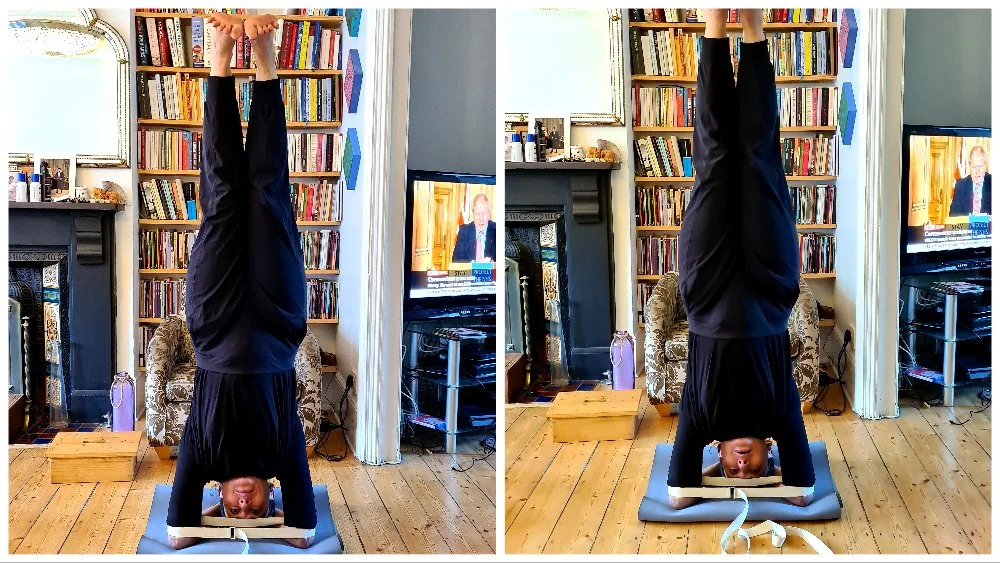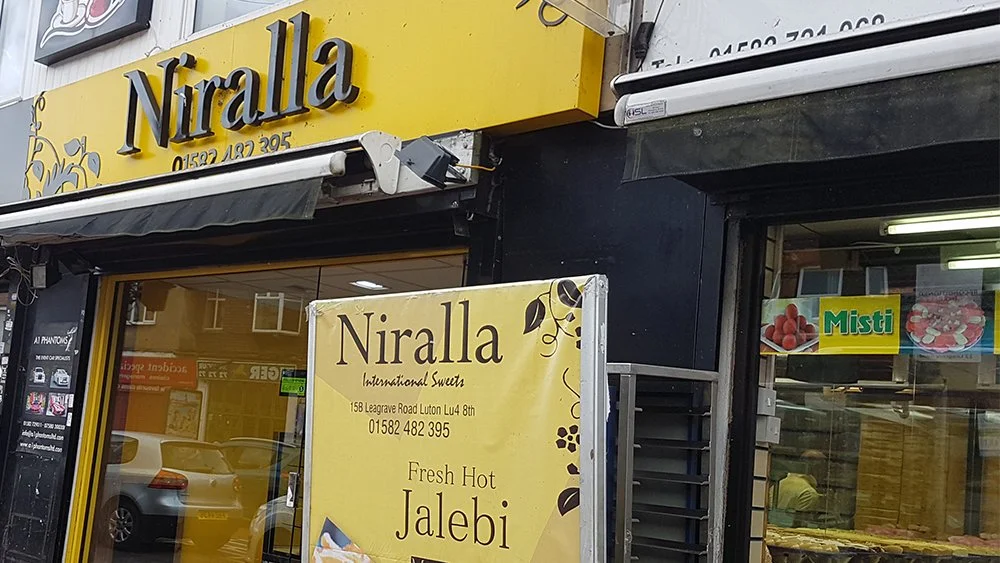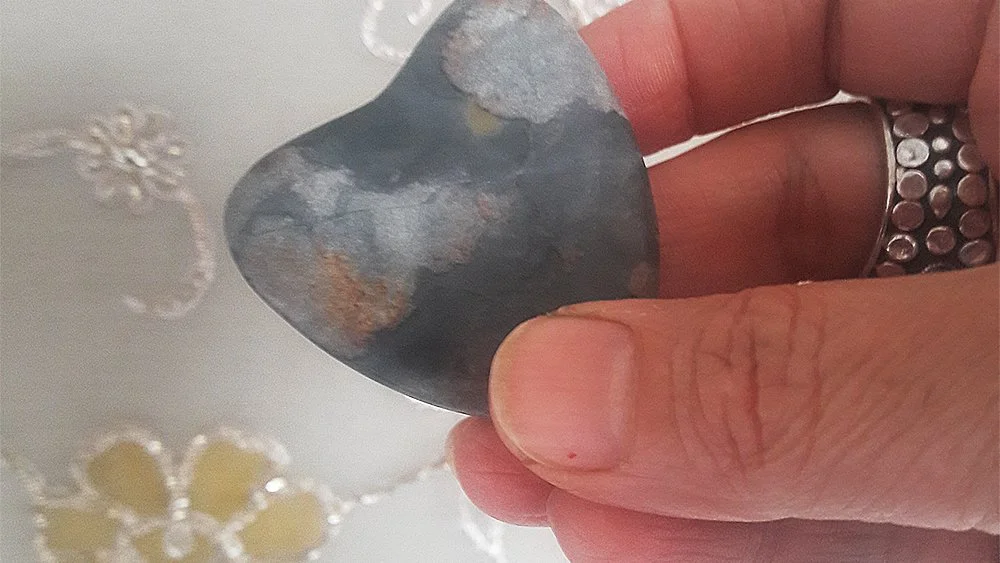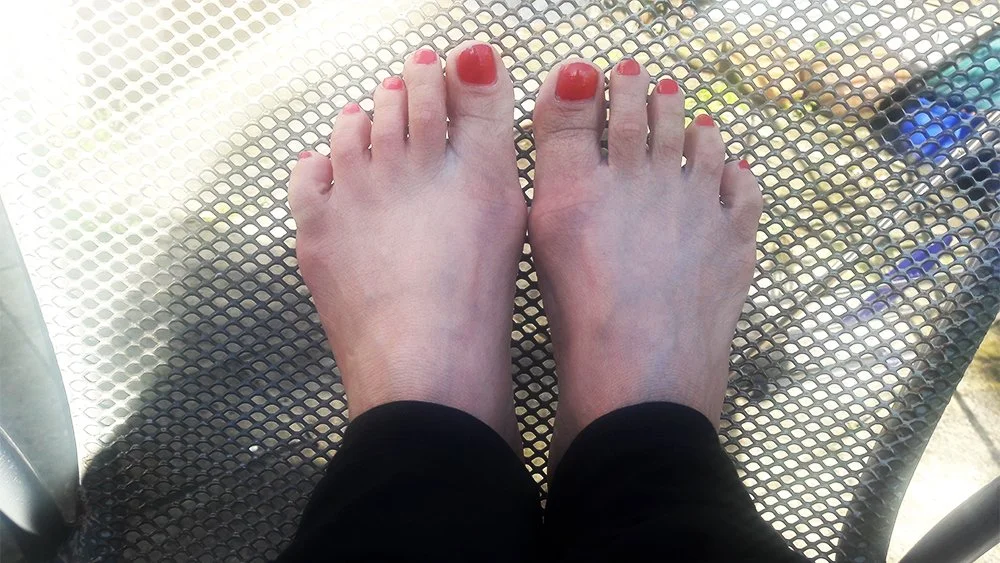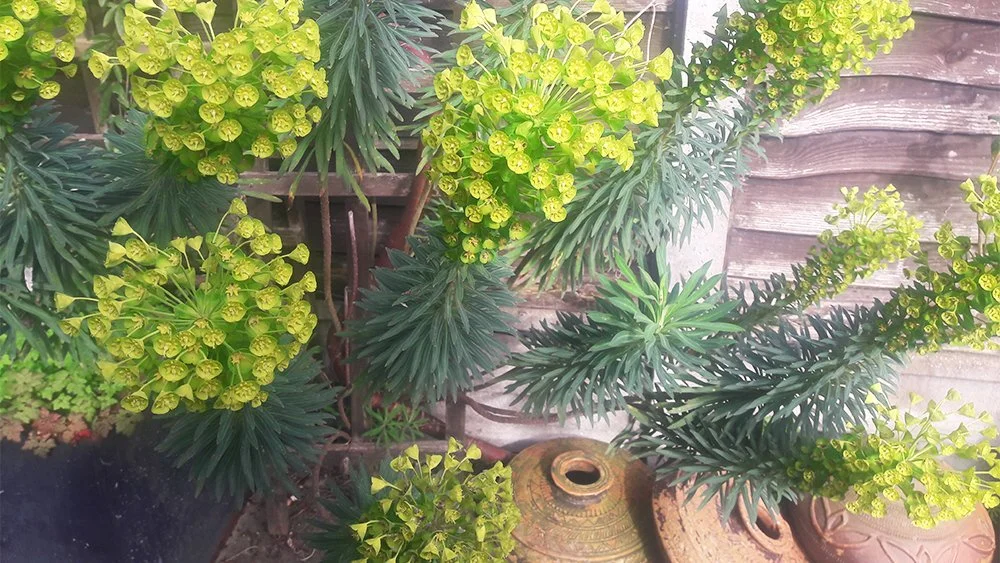Touchstone Tales — Setting the Scene
Mar 27, 2020
Guest blog by Sudha Bhuchar, actor and playwright. Sudha is working in Bury Park on 'Touchstone Tales' — an exploration of the idea of 'touch' using arts and creativity. This project is a co-commission by Revoluton Arts and Wellcome Trust.
Touchstone: a standard; criterion, yardstick, benchmark
Standing on my head is something I usually only do at my bi-weekly yoga classes at the gym I belong to, but in this COVID-19 lockdown world we’re all in, I am trying (and mostly failing as sons or husband interrupt with switching on ‘breaking news’ or box sets of ‘Suits’) to incorporate some practice at home.
Being upside-down seems a good vantage point from which to embrace this ‘new normal’ and gain perspective.
As the national and global emergency deepens, I can almost hear the repetitive voice on the satnav telling me it is ‘recalculating … recalculating’ my journey, but this moment is not as simple as getting from A to B, rather a compelling need it seems to ‘recalibrate’ a whole new way of living and working, while physically staying still.
There is much consolation in knowing that ‘we’re all in it together’ and most of us, despite our rising anxiety, are not on the ‘frontline’ of this invisible enemy, unlike doctors, nurses and other key workers who really need us to listen and ‘stay at home’.
My inner voice protests:
‘But I need to travel to Luton where I can continue to be ‘in company’ with the communities in Bury Park! Engaging with people and exploring the theme of ‘touch’! Capturing their ‘lived experience’ and co-creating a new piece of work/works’!
For in late autumn 2019, I had the privilege to be awarded the ‘Touch Commission’ by Revoluton Arts/Wellcome Collection for a ten-month residency in Bury Park to inspire this new work which will be Touchstone Tales.
This ‘stretchable’ time is a gift for any artist, and I kicked off my residency in early December with a performance of Evening Conversations (my extended monologue inspired by my banter with my millennial sons) at Bury Park community centre, which was transformed into a performance studio by the wonderful Jitty from The Jaan Mix. Luckily my piece seemed to resonate with the warm audience and fortified with samosas from Niralla, made by local legend, the inimitable Shazia Baaji, I felt both the lightness of this unique opportunity as well as the weight of wanting to create something of significance that would ‘touch’ the people whose stories will be at the heart of this evolving treasury.
The Touch Commission runs alongside a social science online research study developed by a team from Goldsmiths, University of London and co-commissioned by Wellcome Collection and BBC Radio 4.
The Touch Test was launched this January on Radio 4 by Claudia Hammond and thousands of people have taken part in the survey which closes this Sunday 29 March. It is shaped by the themes of personal touch, touch and others and touch and health and the analysis/results will be shared by Claudia Hammond on Radio 4 later this year.
Touchstone Tales is a more qualitative response, exploring the everyday lives and stories of people from predominantly South Asian communities linked to Bury Park; lives which have a profound connection with touch — from the foods on display, to the silks and materials in shops to the communal acts of prayer and worship and ‘threading’ and other tactile treatments on offer in the beauty salons. This deeply personal perspective will feed into Wellcome Collection’s aspiration to find new models, in collaboration with arts partners, to challenge how we can think and feel differently about health.
My inner voice continues to nag.
The core brief of this residency is to spend regular time in Bury Park, getting to know people who have been misrepresented time and again and I want to fulfil this fully.
I sit glued at my desk in Wimbledon and will my tingling fingers on the keyboard to fill the empty page with fragments from stories and the voices of people I have already met and engaged with in the last few weeks, through my practice and building trust. Stories that echo my own second-generation British Asian experience — of marriages sealed across continents, lost and found loves, treasure chests of silks and hope realised or bundled with the fineries into suitcases lying on top of cupboards waiting to be discovered by sons and daughters.
Through it all there is the golden thread of family, community and connection.
My sit bones nestle in my feet on my inadequate office chair and I realise my brain is already more alert to the sense of touch now as it ‘feels’ the pins and needles in my feet and doesn’t command me to shift position immediately.
I choose to inhabit the moment fully.
The coolness of the grey heart-shaped ‘touch’ stone pressed in my palm reminds me to stay ‘present’. Given to me by a Sufi friend many years ago who routinely spends weeks in self-isolation by choice in a garden shed, or the Swiss mountains; she has always been a guide about the transience of things.
Rubbing my aching neck, I unsuccessfully try to conjure the sensation of a hot stone Thai massage I had treated myself to some months ago as a reward for getting a small acting job which like all TV projects, has now been shelved.
Defeated, I seek refuge in the kitchen where stir-crazy younger son is trying to curb his cabin fever through blasting Stormzy’s ‘Lessons’ on his speakers and using up four precious eggs on a single omelette!
He tells me his middle is getting ‘mushy’ and he needs to train and ‘bulk’.
He promptly orders a weights bench on Amazon so he can deadlift in the back garden, a poor substitute for the gym which is now closed.
Squeezing my own middle, I realise my ‘love handles’ could easily turn to ‘dough’ in the next few weeks.
I walk into our untamed small garden and sit on our rusty garden chair with my feet up on another.
The sun is shining and touches my face with its warmth. It filters through the holes in the ‘jali’ (lattice screen) pattern on the back of the chair my feet rest on. My mother’s feet (now mine — how did that happen?) with her signature bunions, sway to and fro like windscreen wipers, the rhythm and feel of the lattice beneath them is ‘metal cool’ and soothing.
I am reading The Power of Now by Eckhart Tolle slowly, underlining the insights on every page, tying to embrace the basic message of ‘acceptance’ and ‘surrender’ and ‘being’ in the current moment fully as if you had chosen it to be ‘exactly’ as it is.
I notice the Euphorbia plant that has invaded through a crack in next door’s fence and is now thriving in our garden growing of its own accord, next to the pots I carried all the way from India in hand luggage many years ago. The wind blows its feathered branches with thick fronds of green flowers at the end, inviting me to get up and ruffle them with my fingers like the untamed hair of a small child.
Touch is everywhere.
Back at my desk, the eerie silence (apart from my tinnitus) is cut by the chatter of the children next door, the girl is warning her toddler brother not to throw sand. They are playing in a mini turtle-shaped pit, sand slipping through their soft fingers. I recently read that a person with ‘mirror touch synaesthesia’ would have felt that sand through their own hands just by the visual stimulus of the children playing. I long to be able to ‘feel’ my body buried in warm sand in the Moroccan desert, a treatment that has been on my bucket list for years!
I have drifted away from The Power of Now already!
The pressing question for me right now is how to bring Bury Park to Wimbledon during these weeks of lockdown?
2020 had begun so positively with my regular train journeys to Luton, despite the freaky storms and changeable weather, and I have had many inspiring encounters; given impromptu mini-workshops in the ‘Ghar se Ghar’ wellbeing groups where sisterhood, sustenance and self/selfless love is abundant; shared lunch and candid conversation at the Guru Nanak luncheon club; recorded the stories of shop owners and momentum and interest in my work was cumulatively building with new dates multiplying in the diary.
All upcoming events have had to be cancelled and I am indeed ‘recalibrating’ how to reframe this work through the prism of self-isolation, when we are forced to distance ourselves from physical touch, indeed wipe out the traces of where/what/who our hands have been in contact with.
Having done The Touch Test myself, and as a second-generation immigrant whose family has experienced much separation, I was taken by the concept of ‘Touch hunger’ (absence of touch and an intense longing for it) which is one of the areas of interest in the survey. Another is how vividly us humans can ‘imagine’ touch.
I have been humbled by how quickly people are reaching out to each other during this crisis, through social media and on-line forums and making imaginative offers and disseminating information and humour in all languages, so that we can continue to connect and ‘touch’ each other’s lives.
Science tells us that the technologies of the future promise to add emotional aspects like wearing ‘hug vests’ that can give you a squeeze and replicate the hugs of loved ones who can’t be physically present.
Even though I am a bit of a technophobe, I have already embraced conducting a workshop in a ‘Zoom room’ with cross-cultural women from the Dar Aminah Book Club in Luton who had done the Touch Test on my invitation, and shared their stories through talking about significant objects they like to touch.
I am inspired by ‘verbatim’ theatre and its leading practitioner Anna Deavere Smith who says that ‘each person has a literature inside them’. From the storehouse of interviews, I have already recorded and continue to conduct by skype and telephone, I know that the people of Bury Park have a whole library to offer and author.
Over the next weeks and months, I hope to share some of this material through writing a bi-weekly blog inspired by the verbatim testimony and growing online engagement, as well as my family’s experience.
I would like to express my gratitude to Jenny Williams and all the wonderful team at Revoluton, especially Imrana Mahmood, who as community activist is known and loved in Bury Park, for enabling this residency to evolve and for Revoluton’s work to reach outwards, while looking after our family and loved ones at home.
Maybe this period of lockdown will truly be a ‘Touchstone’ moment, which will extend and challenge how we think about touch and we will emerge on the other side, more alive to its beauty in multiple ways.
I am also looking forward to the findings of The Touch Test and urge you to contribute by filling in the survey before it closes this weekend on Sunday 29 March.
— Sudha Bhuchar, actor/playwright and founder of Bhuchar Boulevard.


